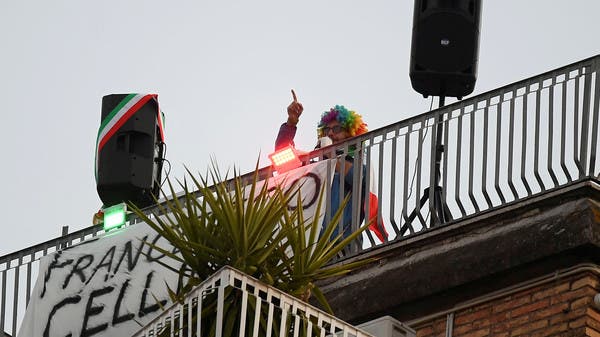From "The Empathy Guru"
A New Year's Prayer for our Children
Jan 1, 2021
.....
Over and over, we’ve attempted to pin this pandemic on those we disagree with politically. I’ve written about this here. It’s just nuts, and these things have to stop. Or we’re going to end up in a civil war. And that will kill far more young people than COVID ever could.
Where we are missing the boat regarding COVID is the damage that the pandemic has done through destruction of relational growth that really fuels how young minds are formed. Primary- and secondary school-age kids get this from going to school, and there is no real risk, despite the histrionic anecdotes pushed by the media, for school children. Yes, there is a smattering of extremely tragic cases that are part of the pandemic. One of the curiously sociopathic angles discussing COVID is the risk to football players for some version of myocarditis as an after-effect of the pandemic — as if the well-established dangers of smacking each other’s skulls together weren’t enough. There can be no better juxtaposition of how we perceive risk, however. One is a reason to lock down/up our children indefinitely. The latter is merely a continuation of “how we do things around here.” The various lockdowns have been done ostensibly to save the old, though, once again, it’s not clear that any of this anti-socialization has helped them either. In fact — probably not.
When it comes to college-age kids, living in a university community, I hear the constant berating from the elders about irresponsible college kids are, because they continue to socialize. And it’s wild to me that voices of control have been recruited from the student population themselves. I’m not going to name names, because I still have hopes that these young people, though adults, will grow out of the need to please their elders and represent their natural constituencies. There is really functionally no risk to college kids as well. And schools that have opened (I live next to the University of Idaho) have managed to even control spread, as much as it can be contained, than schools that have gone online. Which would, not surprisingly, jibe with the overall statistics — that not much we’ve done, plus or minus, really matters.
If we’re to start understanding why the enforced collapse of socialization matters to all students, we’re going to have to come to terms with what we actually do in schools. The answer is not “we smart adults tell students a bunch of stuff, they soak it all in, and they’re far better off for it.” I’ve been teaching (and winning awards) my whole career for teaching, which is really only a modest part of a relatively modest career. The reality is that students learn mostly from each other. And the lessons they learn, sometimes sweet, sometimes bitter, are mostly about how to relate and listen to each other. We sprinkle the lessons of the venue on top of all of this, of course. But the biggest hunk of everything they learn involves themselves, and their interactions.
My tagline, since I started my empathy project, has been “as we relate, so we think.” The meaning of this is not simply “if you relate nice, then you think nice.” The stakes are far higher. The DeepOS lesson of all this is that relating to different people, across varying ages, social statuses, and racial/ethnic variations, creates the conditions in the brain for other complex, more discipline-specific information to get slotted. Without that interaction, though, the brains of young people, while not exactly being frozen, do not thrive. And being that all people, in all walks of life, are spread out on a probability distribution for pretty much any issue/concept you can think of, we will decrease a certain percentage of the population’s intellectual and developmental abilities in ways we cannot predict yet. If you say you care about disadvantaged populations in the U.S. this should deeply concern you. Those will be the students whose starting line is moved back once again. My advantaged students, and their parents, can and will find ways around this, and I absolutely do not begrudge them.
But in a time of already-extreme separation between opportunities for rich and poor, those without resources, juggling even furnished iPods in mediocre online classrooms, will be even more screwed. Don’t fool yourself. And they also will not have the more evolved social environments that well-off parents are already creating for their children. Mores the pity.
Just so folks know, I’ll be back in the classroom myself in 18 days, running students through my curricular vehicle, the Industrial Design Clinic. I’m one of the few that’s made that choice. It was not forced on me by my administration. And, no, I haven’t had the vaccine. And yes — when I’m told my number’s up, I’ll get in line, but not before. I already know there are people that need it worse than me. There’s a reason I have 2400 hours of sick leave accumulated through my career– it’s not because I’m unhealthy.
I’m doing it because, even though it will be a difficult classroom environment, it will give my students to get to know their best teachers — each other. We’ll be in masks, we’ll be wiping down tabletops, all things of indeterminate efficacy, but part of whatever set of rules we are told to follow. But we’ll do it together. And I’m looking forward to a great year.










